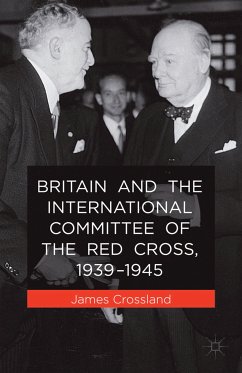
Facing Down the Soviet Union (eBook, PDF)
Britain, the USA, NATO and Nuclear Weapons, 1976-1983
Versandkostenfrei!
Sofort per Download lieferbar
40,95 €
inkl. MwSt.
Weitere Ausgaben:

PAYBACK Punkte
20 °P sammeln!
Facing Down the Soviet Union reveals for the first time the historic deliberations regarding the Chevaline upgrade to Britain's Polaris force, the decisions to procure the Trident C-4 and then D-5 system from the Americans in 1980 and 1982. It also details the decision to base Ground Launched Cruise Missiles in the UK in 1983.
Dieser Download kann aus rechtlichen Gründen nur mit Rechnungsadresse in A, B, BG, CY, CZ, D, DK, EW, E, FIN, F, GR, HR, H, IRL, I, LT, L, LR, M, NL, PL, P, R, S, SLO, SK ausgeliefert werden.












